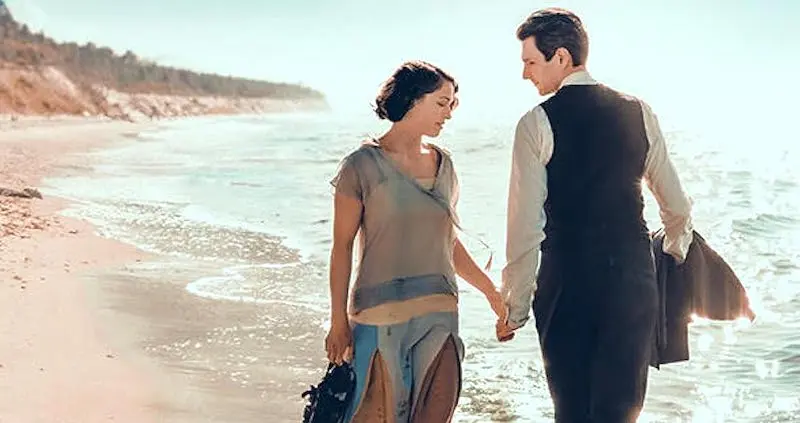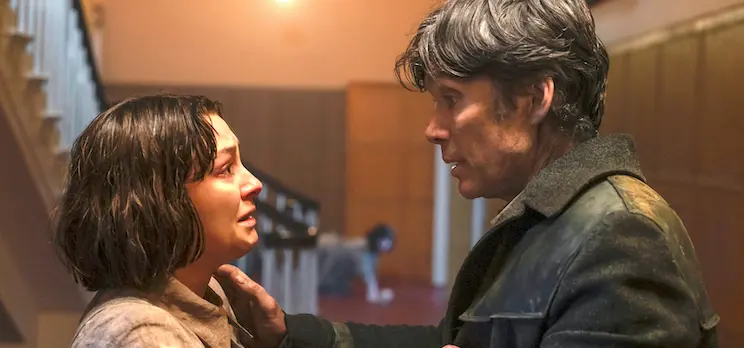Film review: The Glory of Life: biography becomes art
Cinema / Reviews - 03 November 2024
Read the review of The Glory of Life, the film about Frantz Kafka starring Sabin Tambrea: plot, review, cast

The Czech writer Franz Kafka (played by Sabin Tambrea) finds himself in a seaside town, Müritz, on the Baltic Sea. He writes only at night, but has reached a dead end. Suffering from tuberculosis, he now knows a new kind of distraction: a woman, Dora Diamant (Henriette Confurius).
With Dora, he swims, rides a motorbike, and the life previously restricted by his illness now seems to take a new direction. "This disease determines my life," he confides to Dora. "Even now?" she asks. "Not now," he replies. His oppressive family is in fact only trying to protect his health: his father pays his medical bills and his sister is at his side. Kafka decides to leave the seaside town to follow Dora, who has to go to Berlin for a performance.
Biography sublimated into art
Kafka, however, returns to Prague and writes listlessly. "Only when I stroke Dora's hair does everything seem real," he confessed to his friend Max Brod, who would later publish his work. When he moved to Berlin, he proposed to Dora, but his health deteriorated. *The Glory of Life bears the stamp of a biopic, which makes it difficult to appreciate the protagonist's life beyond his iconic character; if he were not Franz Kafka, the story would simply be that of an ailing writer who falls in love with a young woman. But then a line appears: "Gregor Samsa awoke one morning from troubled dreams to find himself transformed in his bed into a monstrous vermin". The beginning of *Metamorphosis*. And perhaps the pathos that Franz lives is the very essence he pours into his stories.
In this way, the ordinary life of an ailing man is sublimated into art, and illness becomes a shell that one longs to shed, like Gregor Samsa's armour that pinned him down, unable to turn in his bed. When Kafka is hospitalised, it is Dora who cares for him, and the power of love overcomes the family's efforts to control him.
In its
final section, the film reflects the struggle of a man facing his last days,
fighting not to give in to illness, but this does not diminish what has gone
before. "I believe that the glory of life is always within reach, in all
its fullness." Kafka's own words underline the film as a counterpoint.
Here, biography merges with a depiction of art itself.
© All right Reserved












